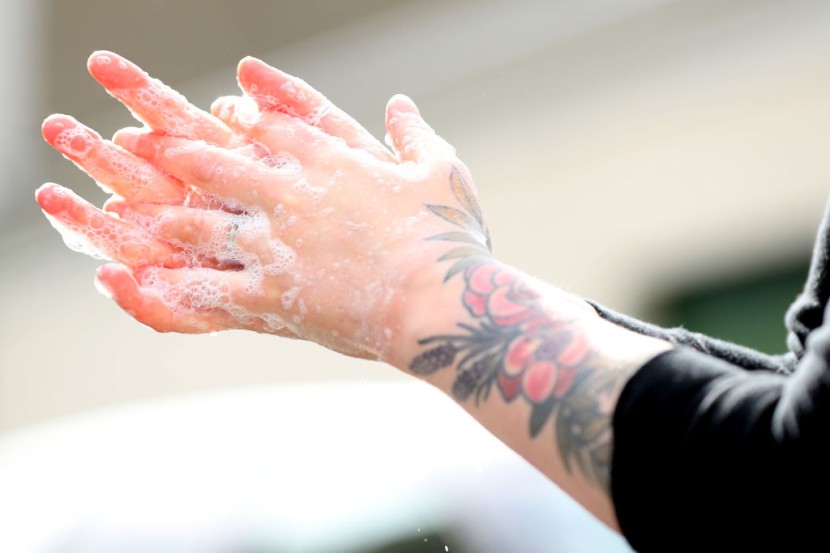
Wearing of masks has divided the country, but hand-washing is something that everyone would probably have the same opinion on. After all, hand-washing is one of the most crucial acts that could halt the spread of the new coronavirus.
But several millennials claimed that bar soaps are contaminated with germs, rather, they promote using liquid soap.
So what type of soap is actually recommended for hand-washing? Does the type of soap used for hand-washing really matter? Inverse looked into the issue in order to finally answer these queries.
On a statement made by a student doctor at the University of Oregon's Institute of Molecular Biology, it said that the size of disease-causing microbes is too small to be seen by a naked eye. But if these microbes could actually be seen, then we'll be able to determine if the coronavirus is on our hands and know when to hand-wash or avoid people.
With our normal sight, we are not capable of seeing trillions of microbes, which include fungi, bacteria, and viruses, that reside in our microbiomes, something that's being carried by all living creatures in their bodies. On the statement, the student doctor said how we are being described by one of their professors as walking clouds of microbes.
The different parts of our bodies, including the skin, cater specific micro-environment. Like the Peanut character in Pig-Pen, all of us are constantly acquiring and transferring microbes as we come across people and surfaces.
As carriers of different microbes and at the same time trying to protect ourselves from the new coronavirus, hand-washing for at least 20 seconds is advised by the experts. Since Covid-19 is transmitted by droplets from breathing, sneezing, and coughing, being cautious with our actions and proper hand-washing to prevent the virus from invading our body after we come to contact with other people and surfaces, can help impede the spread of the virus.
According to the World Health Organization proper hand-washing for at least 20 seconds reduces the number of microbes present on our hands. This is applicable whether you are using a bar or liquid soap. Both kinds have surfactants, which decrease surface tension that let soap to disperse. Soap surfactants are compounds that have dual properties; one interacting with oil, dirt, and microbes present on the skin and the other interacting with water.
Covid-19 is an "enveloped" virus that is being adjoined by a lipid or fatty acid that is an easy mark for surfactants, which are essential in dissolving the membrane and killing the virus.
Bar and liquid soaps are fairly effective in lowering the number of microbes on our skin since both have surfactants. But aesthetically, they are different. Several people find the residues left of bar soaps on soap dishes as unpleasant to look at. To add on, bar and liquid soaps have a different carbon footprint.
Bar soaps have been used way back 2800BC. Vegetable or animal fats were transformed into soap and alcohol when it reacts with alkali. When rubbing your hands with bar soap, the friction created is bonus hygiene, as it might help remove debris better. Although some people worry that bar soaps may grow bacteria, it has been proven by studies that there is little to no chance of transmission from bar soap to hands when washing.
The mass production of liquid soaps, containing detergents that are artificially surfactants, started in the 1980s. Production of liquid soaps is more expensive. This requires five times the energy needed to produce bar soaps.
To battle Covid-19, using either type of soap does not matter. What matters now is we unite as a society and practice three lifesavers that we have, wearing masks, social distancing, and proper hand-washing.








